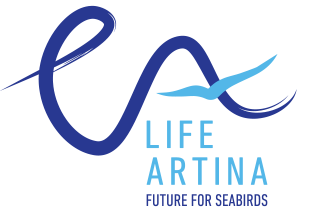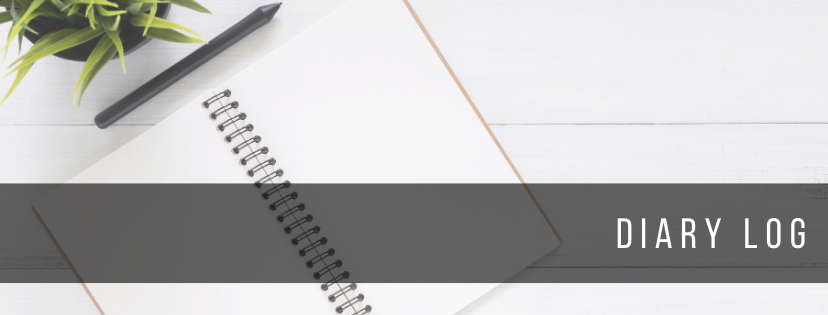
Author: M. Taraš
Through the replication and transferability strategy we developed, our goal was to showcase to a wider audience and stakeholders the activities we conducted over the five years and how they can utilize our accumulated knowledge. Within the LIFE Artina project, numerous activities were carried out, and one of them involved organizing coastal clean-up actions. With the help of the Marine Litter Monitoring Protocol we used, in most of our actions, we documented and categorized various types of collected waste after its collection on the beach. Some of the categories include plastic, rubber, textiles, metal, paper, glass/ceramics, and treated wood. In this article, we provide a brief overview of the clean-up actions conducted as part of the replication and transferability strategy.
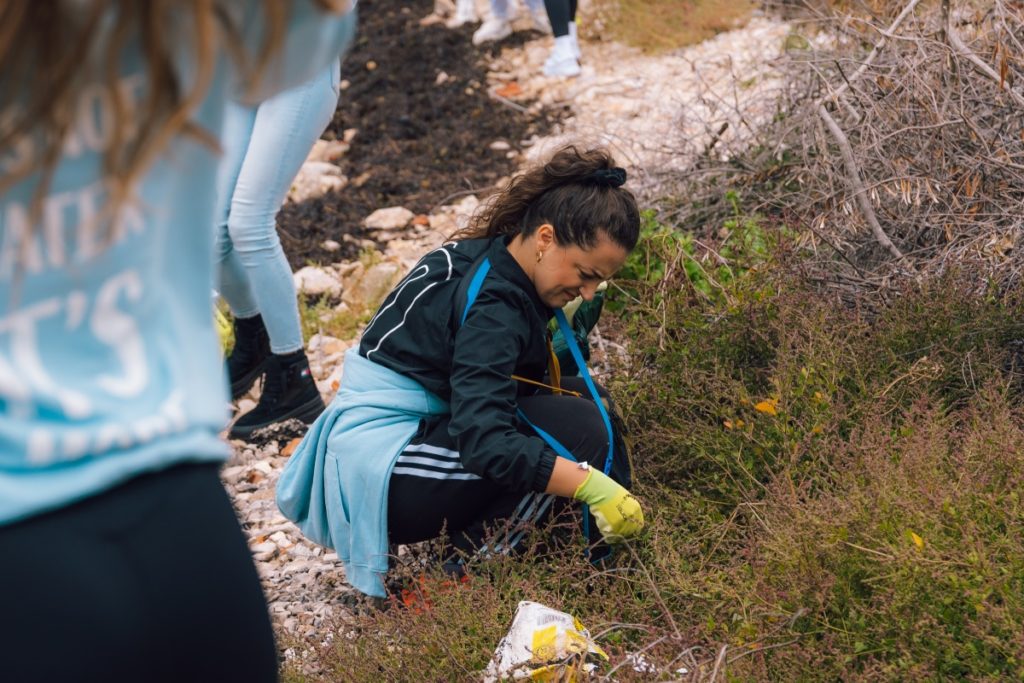
Smaller cleaning actions in Omiš and Stari Grad
As part of two smaller cleaning actions, on September 25, 2023, in Omiš, and on October 4, 2023, in Stari Grad on Hvar, over 1000 pieces of various waste were collected. The most abundant category of marine litter was plastic, with 722 pieces collected, 328 in Omiš, and 394 in Stari Grad. In addition to counting, the plastic waste collected in Hvar was weighed, revealing over 6 kilograms of plastic. Alongside the predominant plastic, in Omiš, 174 pieces of paper, as well as 48 pieces of glass and ceramics, were found. Less represented waste categories included wood (19 pieces), rubber (11 pieces), metal (10 pieces), and fabric (7 pieces). In Stari Grad, 19 pieces of glass and ceramics were collected, while other waste categories were minimal: metal (4 pieces), fabric (2 pieces), and one piece each of wood and rubber.
Big cleaning action in Pantan
On October 19, 2023, more than 50 participants collected 400 kilograms of waste on Pantan beach near Trogir. The collected items included car tires, construction and agricultural waste, shoes, various types of metal, glass, and even a discarded couch. The substantial presence of plastic items and other waste in Pantan, a wetland habitat for many birds, poses a serious threat. There are frequent instances where birds become entangled in different types of plastic, resulting in injuries to their wings, legs, or beak. Such injuries significantly impair the ability of birds to survive in the wild. It is essential to raise awareness about the harmful impact of plastic on birds, and efforts to reduce plastic use and preserve the natural habitat of birds must be integrated into all initiatives aimed at preserving the biodiversity of this area.
Locals collected about 173 kilograms of marine litter
With the support of Sunce, the Drvenik Veli Local Committee conducted a large-scale cleaning action on November 25, 2023, during which approximately 173 kilograms of marine litter were collected. The most numerous category of waste is plastic, with 2080 collected plastic items, while unidentified pieces of plastic (921 pieces) as well as Styrofoam boxes and pieces of the same are the most frequent items (202 pieces).
The total weight of plastic waste was approximately 142 kilograms. Other categories of waste are significantly less numerous: processed wood (20 kilograms or 90 pieces), metal (4 kilograms or 26 pieces), and glass, ceramics, rubber (each less than 1 kilogram).
Cooperation leads to a better understanding of the state of coastal pollution
On November 27, 2023, on Smokvina beach within the municipality of Dubrovnik Littoral, we conducted hands-on training and the cleaning action. Sunce, in cooperation with the Public Institution of Dubrovačko-Neretvaska County, Dubrovačko-Neretvanska County and the Dubrovačko Primorje Tourist Board, collected about 18 kilograms of various waste.
In addition to these activities, we also conducted a short education for representatives of the institutions. The participants learned about the implementation of the Protocol for the monitoring of marine litter. Continuous data collection can enable more efficient advocacy of measures to reduce pollution, or better management of waste on land. The association of those gathered with the goal of cooperation in the future represents a joint contribution to the knowledge of the state of pollution of our coast.
Within 45 minutes, students collected more than 11 kilograms of marine litter!
During the cleaning action carried out on December 14, 2023, in Omiš, students collected more than 11 kilograms of waste of different categories. After collecting and sorting, students documented the composition and quantity of waste in the Protocol for Monitoring Marine Waste.
The most numerous category of collected waste is plastic (214 pieces), with the most frequent objects being unidentified pieces of plastic (77 pieces). Following in terms of quantity is the category of glass and ceramics (86 pieces), with pieces of glass and ceramics being the most commonly collected objects (83 pieces).
Less numerous categories of waste include fabric (30 pieces), metal (23 pieces), and rubber (14 pieces). Specifically, ropes and nets are the most common textiles; bottle caps and lids are the most frequently collected metal items, while unidentified rubber items are the most frequently collected pieces of rubber. Among the remaining categories of waste, only a few pieces of paper and wood were collected.

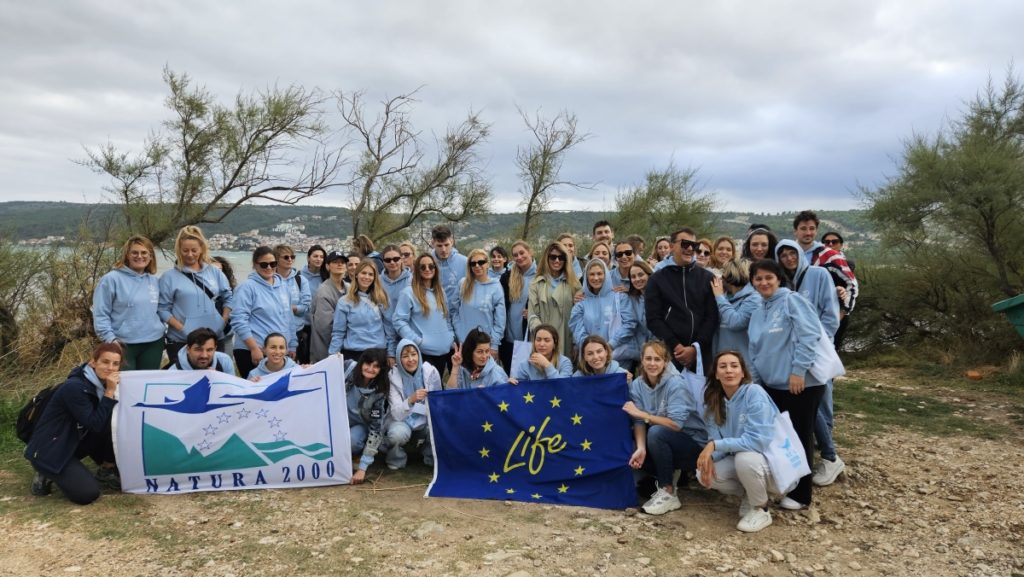


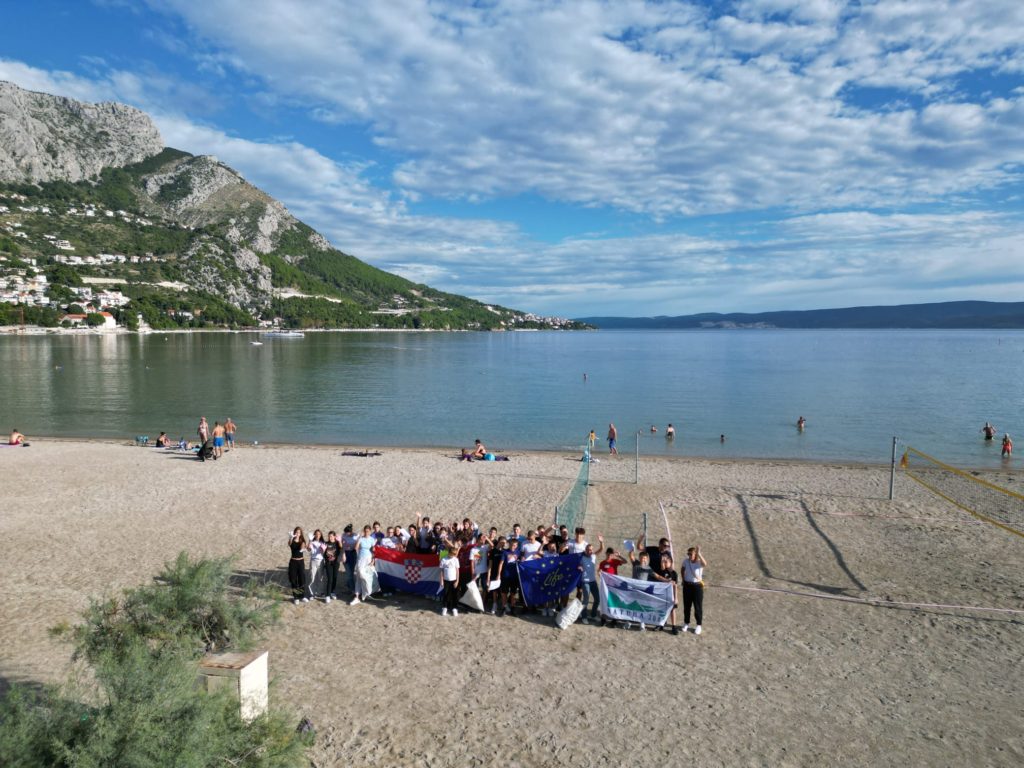
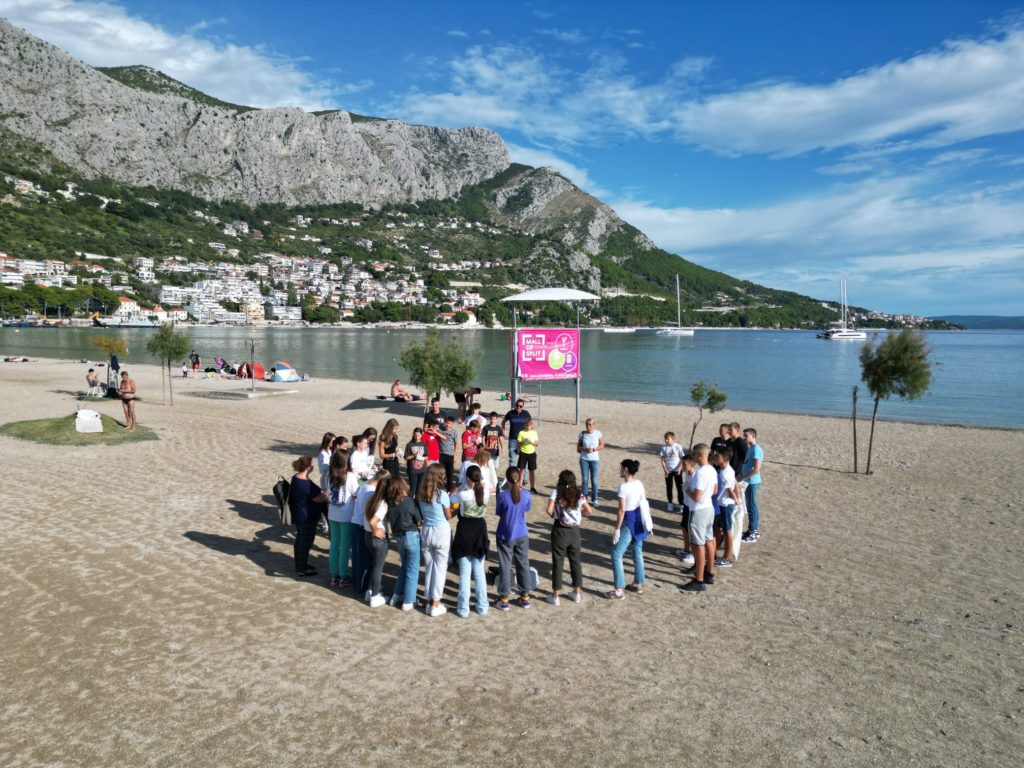
As part of the cleaning actions of the LIFE Artina project, a total of over 600 kilograms of waste from the sea was collected in all the previously mentioned locations.
